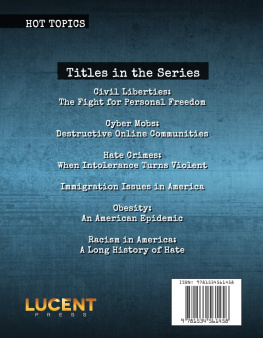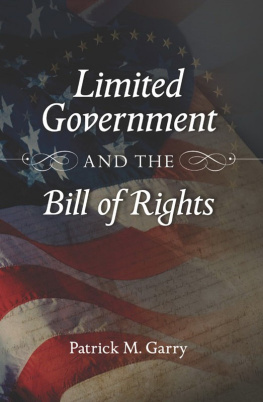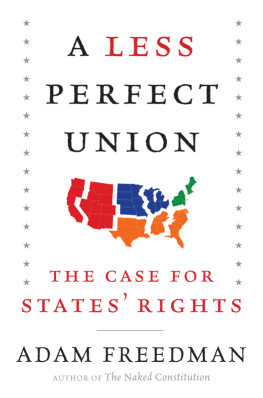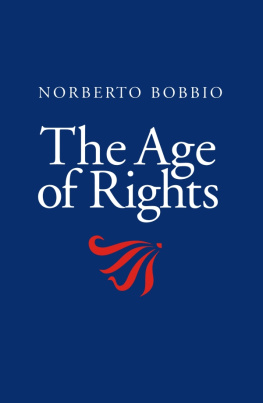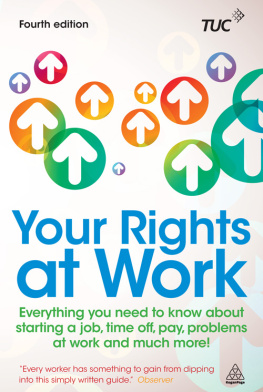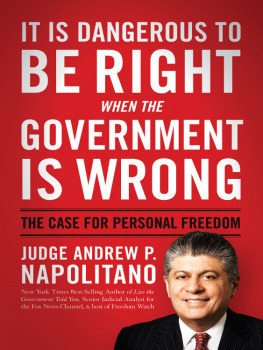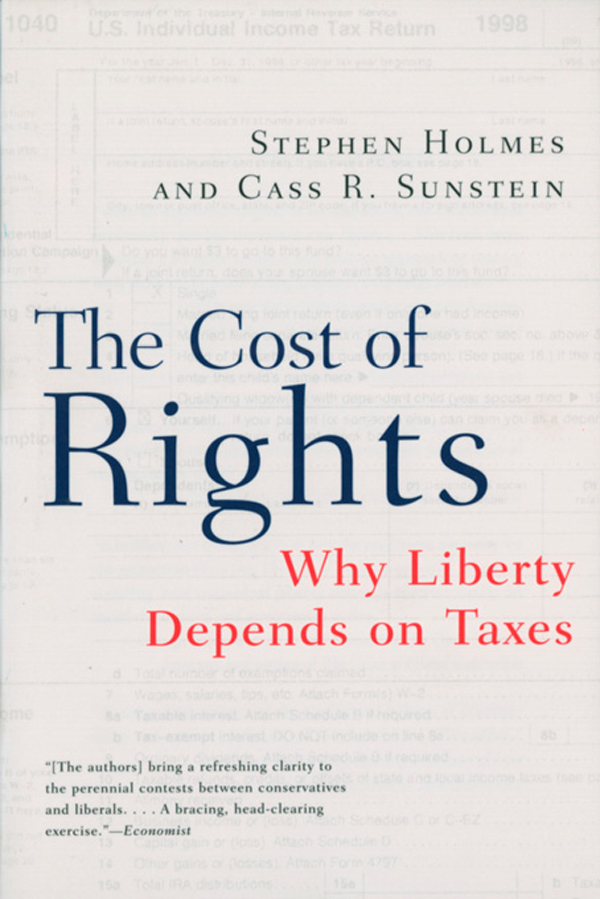
ALSO BY S TEPHEN H OLMES
Passions and Constraint
Anatomy of Antiliberalism
Benjamin Constant and the Making of Modern Liberalism
ALSO BY C ASS R. S UNSTEIN
Free Markets and Social Justice
Legal Reasoning and Political Conflict
The Partial Constitution
After the Rights Revolution
Democracy and the Problem of Free Speech
One Case at a Time: Judicial Minimalism on the Supreme Court
T HE C OST
OF R IGHTS
Why Liberty Depends on Taxes
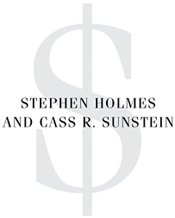
W. W. Norton & Company
New York London
T O G EOFFREY S TONE
C ONTENTS
A CKNOWLEDGMENTS
I T IS A KEEN PLEASURE to thank the many friends and colleagues who helped us with this book. We first stumbled across the cost of rights, as a subject for inquiry and analysis, in discussions at the Center on Constitutionalism in Eastern Europe at the University of Chicago. A healthy respect for the fiscal preconditions of effective rights enforcement arose naturally from observing the underprotection of basic liberties in the insolvent states of Eastern Europe and the former Soviet Union. Russias great experiment with the jury trial, to choose a typical example, went awry when it began to consume 25 percent of already inadequate local court budgets. One of our principal goals here has been to apply what we learned in this eye-opening context to the debate about rights underway in the United States. We thank Dwight Semler, the coordinator of the Center, and our co-directors, Jon Elster, Larry Lessig, and Wiktor Osiatynski, as well as Andras Sajo, for many challenging discussions. We are also grateful for searching criticisms and wily suggestions on the manuscript from Elster, Bruce Ackerman, Samuel Beer, Martin Krygier, Martha Nussbaum, Richard Posner, and Bernard Yack. Sophie Clark, Keith Sharfman, Matthew Utterbeck, and Christian Lucky provided invaluable research assistance. Appreciation also goes to our editor, Alane Salierno Mason, for her incisive comments and steady encouragement.
Introduction:
C OMMON S ENSE ABOUT R IGHTS
O N AUGUST 26, 1995, a fire broke out in Westhampton, on the westernmost edge of the celebrated Long Island Hamptons, one of the most beautiful areas in the United States. This fire was the worst experienced by New York in the past half-century. For thirty-six hours it raged uncontrollably, at one point measuring six miles by twelve.
But this story has a happy ending. In a remarkably short time, local, state, and federal forces moved in to quell the blaze. Officials and employees from all levels of government descended upon the scene. More than fifteen hundred local volunteer firefighters joined with military and civilian teams from across the state and country. Eventually, the fire was brought under control. Astonishingly, no one was killed. Equally remarkably, destruction of property was minimal. Volunteerism helped, but in the end, public resources made this rescue possible. Ultimate costs to American taxpayers, local and national, originally estimated at $1.1 million, may have been as high as $2.9 million.
Opposition to government has been a defining theme of American populism in the late twentieth century. Its slogan is, Dont tread on me! Or as Ronald Reagan put it, Government isnt the solution; its the problem. More recently, critics of all things governmental, such as Charles Murray and David Boaz, have claimed that an adult making an honest living and minding his own business deserves to be left alone, and that the real problem in the United States is the same one being recognized all over the world: too much government.
Yet in Westhampton, on the spur of the moment, public officials were able to organize and direct a costly and collective effort to defend private property, drawing liberally on public resources contributed by the citizenry at large, for the emergency rescue of real estate owned by a relatively small number of wealthy families.
There is nothing exceptional about this story. In 1996, American taxpayers devoted at least $11.6 billion to protecting private property by means of disaster relief and disaster insurance.
Public support for the kind of safety net that benefited the home owners of Westhampton is broad and deep, but at the same time, Americans seem easily to forget that individual rights and freedoms depend fundamentally on vigorous state action. Without effective government, American citizens would not be able to enjoy their private property in the way they do. Indeed, they would enjoy few or none of their constitutionally guaranteed individual rights. Personal liberty, as Americans value and experience it, presupposes social cooperation managed by government officials. The private realm we rightly prize is sustained, indeed created, by public action. Not even the most self-reliant citizen is asked to look after his or her material welfare autonomously, without any support from fellow citizens or public officials.
The story of the Westhampton fire is the story of property ownership across America and, in truth, throughout the world. Indeed, it is the story of all liberal rights. When structured constitutionally and made (relatively speaking) democratically responsive, government is an indispensable device for mobilizing and channeling effectively the diffuse resources of the community, bringing them to bear on problems, in pinpoint operations, whenever these unexpectedly flare up.
The Declaration of Independence states that to secure these rights, Governments are established among men. To the obvious truth that rights depend on government must be added a logical corollary, one rich with implications: rights cost money. Rights cannot be protected or enforced without public funding and support. This is just as true of old rights as of new rights, of the rights of Americans before as well as after Franklin Delano Roosevelts New Deal. Both the right to welfare and the right to private property have public costs. The right to freedom of contract has public costs no less than the right to health care, the right to freedom of speech no less than the right to decent housing. All rights make claims upon the public treasury.
The cost of rights is a richly ambiguous phrase because both words have multiple and inevitably controversial meanings. To keep the analysis as focused and, along this dimension, as uncontentious as possible, costs will be understood here to mean budgetary costs and rights will be defined as important interests that can be reliably protected by individuals or groups using the instrumentalities of government . Both definitions require elaboration.
D EFINING R IGHTS
The term rights has many referents and shades of meaning. There are, broadly speaking, two distinct ways to approach the subject: moral and descriptive. The first associates rights with moral principles or ideals. It identifies rights not by consulting statutes and case law, but by asking what human beings are morally entitled to. While no single agreed-upon theory of such moral rights exists, some of the most interesting philosophical work on rights involves an ethical inquiry, evaluative in nature, of this general kind. Moral philosophy conceives of nonlegal rights as moral claims of the strongest sort, enjoyed perhaps by virtue of ones status or capacity as a moral agent, not as a result of ones membership in, or legal relationship to, a particular political society. The moral account of rights tries to identify those human interests that may not, before the tribunal of conscience, ever be neglected or intruded upon without special justification.
Next page


